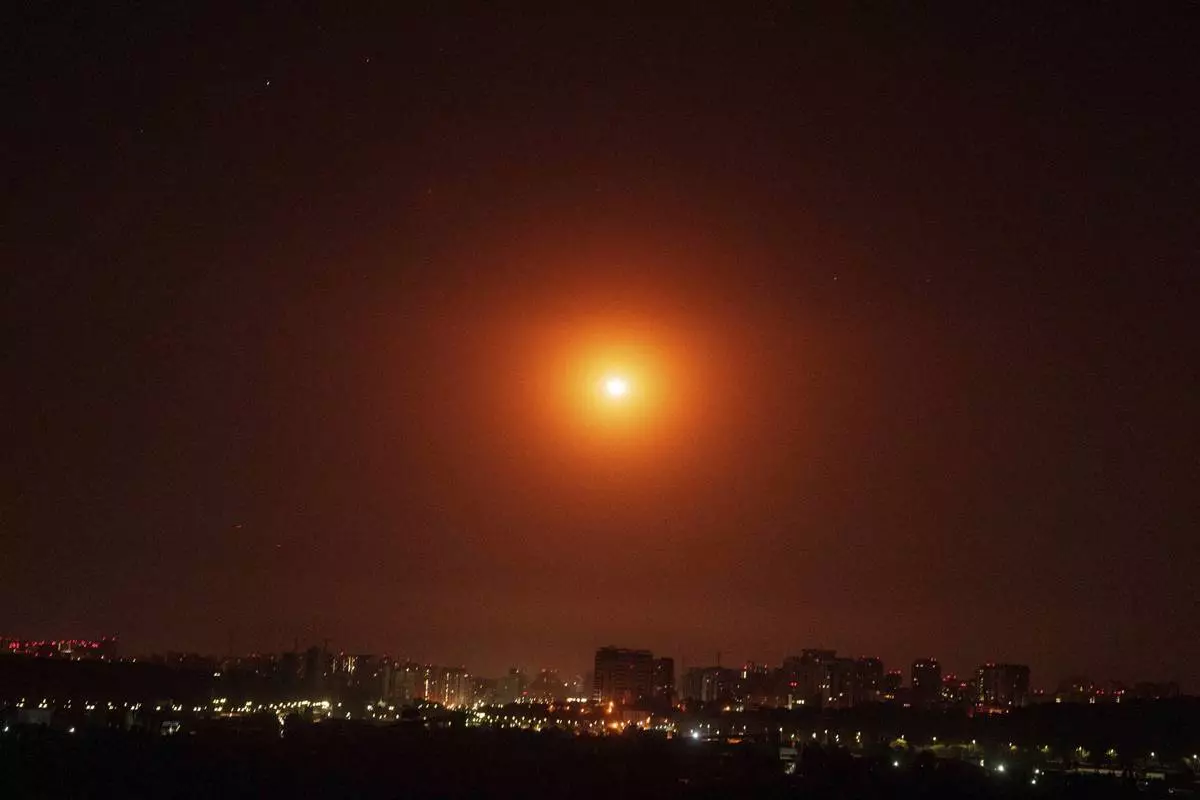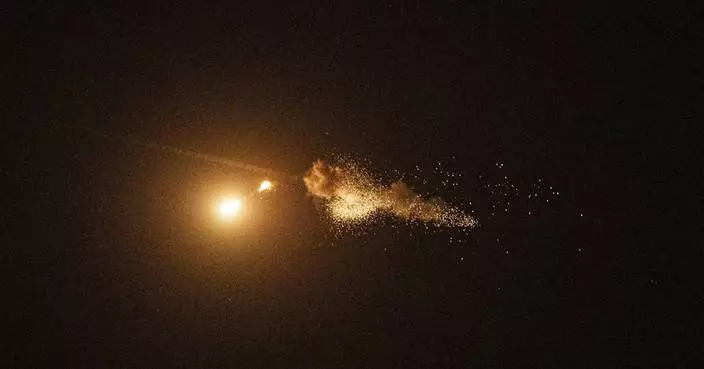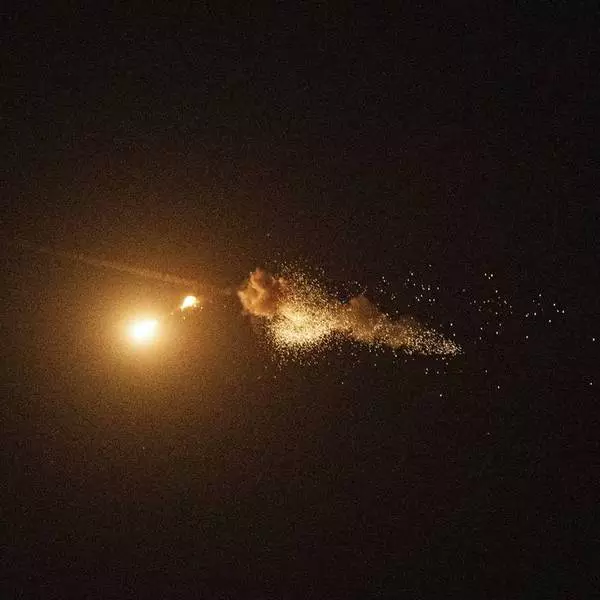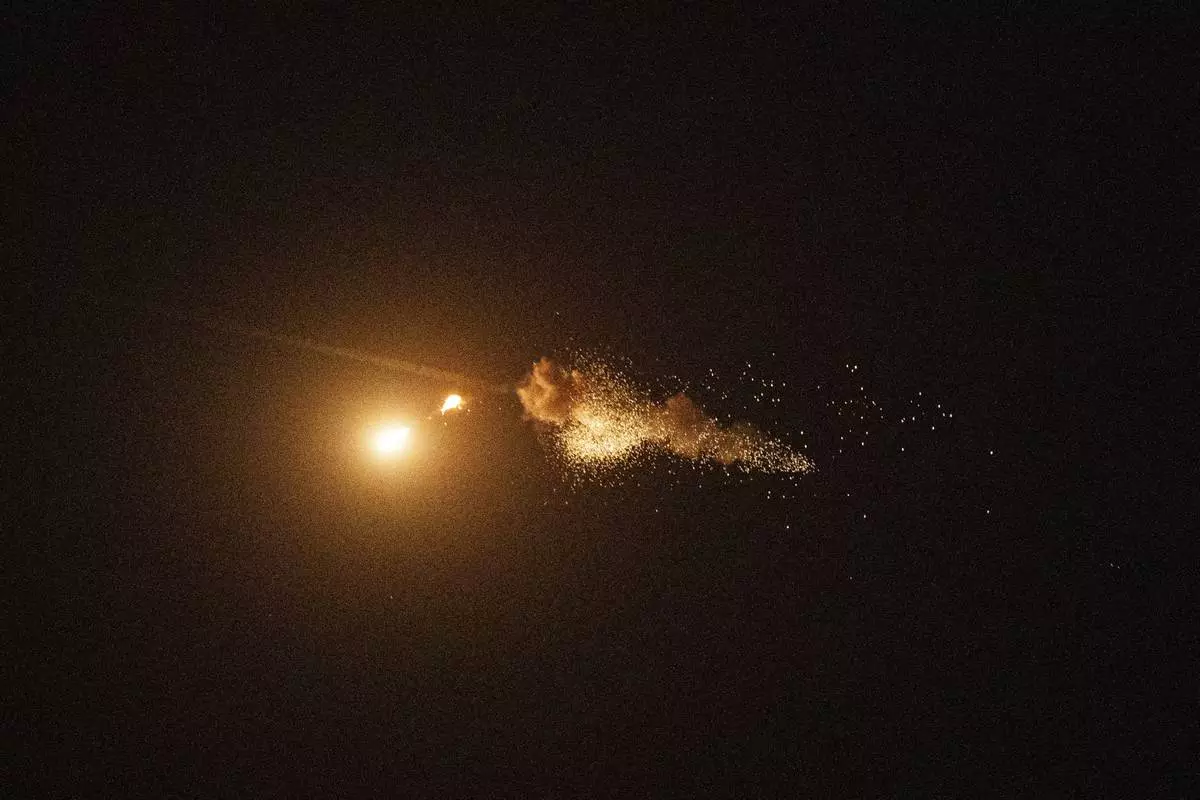KYIV, Ukraine (AP) — A senior Ukrainian official said Monday that Western partner countries must allow Ukraine to use weapons they have supplied to strike military warehouses inside Russia because of strong suspicions Iran has provided ballistic missiles for the Kremlin’s war effort.
The United States has told allies it believes Iran has sent short-range ballistic missiles to Russia for its war in Ukraine, two people familiar with the matter told The Associated Press at the weekend.
Western countries supporting Ukraine in the war have hesitated to let its military strike targets on Russian soil, fearing they could be sucked into Europe's biggest conflict since World War II, but the head of the Ukrainian presidential office said “protection is not escalation.”
“In response to the supply of ballistic missiles to Russia, Ukraine must be allowed to destroy warehouses storing these missiles with Western weapons in order to avoid terror,” Andrii Yermak said on his Telegram channel. He did not specify which country was supplying the missiles.
Russia has already subjected Ukraine to repeated and devastating long-range missile and drone bombardments that have killed more than 10,000 civilians since the start of the war in February 2022, according to a United Nations tally. The barrages have also crippled electricity production.
Ukraine has refused to cave in, however, and recently launched a bold incursion into Russia’s Kursk region even while toiling to hold back a Russian push in eastern Ukraine’s Donetsk region.
Russia has been receiving Iranian-made Shahed drones since 2022. The possible shipment of Iranian ballistic missiles to Russia as well has alarmed Western governments as President Vladimir Putin reaches out to other countries to provide him with support.
Kremlin spokesman Dmitry Peskov on Monday said of the Iranian missile reports that “this kind of information is not true every time.”
He added, however: “Iran is our important partner. We are developing our trade and economic relations. We are developing our cooperation and dialogue in all possible areas, including the most sensitive ones, and will continue to do so in the interests of the peoples of our two countries.”
In Iran, foreign ministry spokesman Nasser Kanaani denied Tehran armed Russia with missiles.
“We strongly reject allegations about Iran’s role in sending weapons to one side of the war and we assess these allegations as politically motivated by some parties,” Kanaani said.
The Ukrainian Foreign Ministry on Saturday expressed “deep concern” about that possibility.
“Iran must completely and definitively stop providing weapons to Russia in order to prove with actions, not words, the sincerity of its political leadership’s statements about non-involvement in fueling the Russian war machine of death,” a statement said.
CIA Director William Burns warned in London at the weekend of the growing and “troubling” defense relationship involving Russia, China, Iran and North Korea. Those ties, he said, threaten both Ukraine and Western allies in the Middle East.
China’s Defense Ministry on Monday announced joint naval and air drills with Russia starting this month.
While China has not directly provided Russia with arms, it has become a vital economic lifeline as a leading customer for Russian oil and gas. It has also supplied electronics and other items with both civilian and military uses.
AP journalist Jon Gambrell contributed from Dubai, United Arab Emirates.
Follow AP’s coverage of the war in Ukraine at https://apnews.com/hub/russia-ukraine

Ukrainian air defense intercepts a Shahed drone mid-air during a Russia aerial attack on the capital in Kyiv, Ukraine, Saturday, Sept. 7, 2024. (AP Photo/Evgeniy Maloletka)

Iranian missiles in Russia are a legitimate target, a Ukrainian official says

Iranian missiles in Russia are a legitimate target, a Ukrainian official says

Ukrainian air defense intercepts a Shahed drone mid-air during a Russia aerial attack on the capital in Kyiv, Ukraine, Saturday, Sept. 7, 2024. (AP Photo/Evgeniy Maloletka)










